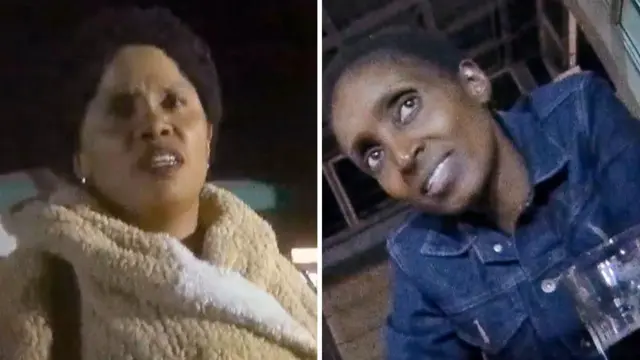My Personal Context – The Value of Data and Humanity
As someone who works daily in field research collecting, analyzing, and validating data. I’ve always believed that credible data serves a higher purpose. It can reduce uncertainty and influence policy, resource allocation, and social transformation. That’s why BBC Africa Eye’s “Madams: Exposing Kenya’s Child Sex Trade” struck such a chord with me. It’s not just an exposé. It’s a vivid example of what happens when data meets real stories and what happens when institutions fail to act.
Setting the Scene: Maai Mahiu’s Hidden Crisis
Maai Mahiu, a trucking and container-hub town in Nakuru County, is more than a waypoint on the Nairobi–Malaba Standard Gauge Railway. According to the BBC’s documentary, it has become a sinister transit hub for child sexual exploitation. Girls as young as 13 are being trafficked into prostitution, often by local women known colloquially as “madams” . One madam, Nyambura, even laughs about handing out sweets to manipulate children into “working.” That casual cruelty stays with me.
Evidence Is Clear. Where Are the Arrests?
The BBC’s investigative team handed all its data—video footage, names, interviews—to Kenyan police in March 2025. When the story aired in August, no arrests had been made. Authorities allege that suspects could not be located. As someone who has managed large-scale field operations across Kenya, I know how traceable participants can be when you have strong leads. This failure underscores a larger issue: a system unwilling or unable to follow through when confronted with human evidence.
Hope Lives in the Stories of Survivors
In the vast darkness, one thread of hope emerges through a remarkable survivor advocate known as “Baby Girl.” A former sex worker of over 40 years, she now provides refuge, education, and health training to young women who escaped exploitation. Four rescued girls recount horrific abuse but also express renewed hope. Two are vocationally training in photography, and two are learning salon skills—all under Baby Girl’s guidance. Yet, her work is precarious. USAID support is ending, leaving these young women and children at risk of being abandoned a second time.
From Data to Advocacy: The Role Research8020 Plays
At Research8020, we engage communities with sensitivity and ethical care to gather field-based, primary data. What the BBC has revealed is a research brief that demands both documentation and an advocacy plan. As professionals, we know that qualitative data must be met with action. These children’s voices must count not just in reports, but in courtrooms and policy tables. Field evidence risks being swallowed by bureaucracy unless civil society keeps pushing. Data systems fail communities when institutions fail to respond.
This documentary is a call for civil society, donors, researchers, and government entities to apply pressure, to fund advocates like Baby Girl, and to demand justice for survivors with consistency.
What We Must Do Collectively
Authorities must act. We must not allow this evidence to remain dormant. Those involved must face prosecution without further delay. Support must be sustained. Organizations led by survivors like Baby Girl need sustainable funding and visibility. Public awareness must be elevated. These conversation points must remain in public dialogue in media, classrooms, and community forums. Use and share data responsibly. Ethical research is not just about collection it’s about dissemination and policy influence.
Final Reflection: Turning Horror Into Hope
This is not only about Maai Mahiu or isolated exploitation. It is a wake-up call for a society that must acknowledge and address its deepest failings. As professionals who trust in the value of evidence, we also trust in the power of empathy and justice. At Research8020, we don’t just collect data we support stories that demand change.
Learn. Share. Act.
Watch “Madams: Exposing Kenya’s Child Sex Trade” via BBC Africa Eye and engage your networks in advocacy. The time to act is now. For research support in social impact and human rights reach out to us.
Website: www.research8020.com
Phone: +254 780 208020
Let this documentary be the spark, not the conclusion.

